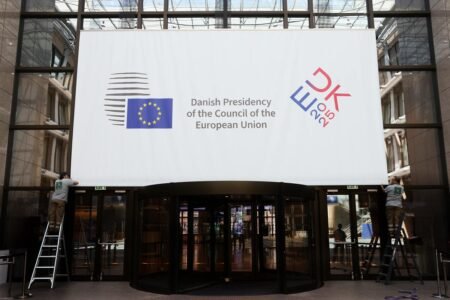(BRUSSELS) – EU companies should find it easier to merge, divide or move within the single market and to digitalise setting-up and running a business, under new company law rules outlined Wednesday by Brussels.
The new company law rules will also ensure that employees’ rights are protected and tax abuse prevented, says the Commission.
“Too often, European companies are prevented from looking for business opportunities abroad,” said Justice Commissioner Commissioner Vera Jourova: “I want to change this and modernise the company law rules. First, I want more online solutions for European businesses so that they cut costs and save time. Second, I want to offer the honest entrepreneurs the choice of where to do business and how to grow or reorganise their businesses.”
The proposal sets out common procedures at the EU level on how a company can move from one EU country to another, merge or divide into two or more new entities across borders.
In line with the landmark judgement from the European Court of Justice (see background guide), companies will be able to move their seat from one EU Member State to another following a simplified procedure.The new rules for cross-border conversions and divisions will now also include specific measures that will help national authorities fight against abuse. Transfers of this kind will include effective safeguards against abusive arrangements to circumvent tax rules, undermine workers’ rights or jeopardising creditors’ or minority shareholders’ interests. Should ever this happen, the operation will be stopped by the Member State of departure even before the move can take place.
Currently, national rules differ greatly between Member States or impose excessive administrative hurdles. This discourages businesses from pursuing new opportunities for fear of too much red tape. It also means that when companies move, employees’, creditors’, and minority shareholders’ interests are not adequately protected.
The new rules will enable businesses to move or reorganise without unnecessary legal complexities and at a lower cost throughout the Single Market. The Commission estimates cost savings for companies of 12,000 19,000 per operation and a total of 176 280 million over 5 years.
Creating companies online: currently only 17 Member States provide a fully online procedure for registering companies. Under the new rules, in all Member States, companies will be able to register, set up new branches or file documents to the business register online. Going digital makes the process of setting up a business more efficient and cost effective:
- online registration takes on average half of the time and can be up to 3 times cheaper than traditional paper-based formats;
- savings for online registration and filing under the new rules are estimated to be 42 84 million per year for EU companies;
- the “once-only principle”, included in today’s proposal, replaces the need to submit the same information several times to different authorities in a company life-cycle;
- more information about companies will be available to all interested parties free of charge in the business registers.
To prevent fraud and abuse, national authorities will be able to rely on each other’s information about disqualified directors. If they suspect fraud, authorities can still request the physical presence of company owners. They will also be able to require the involvement of bodies, such as notaries, in the process.
Directive (EU)2017/1132 as regards the use of digital tools and processes in company law
Directive (EU) 2017/1132 as regards cross-border conversions, mergers and divisions
New Company Law Rules - background guide








